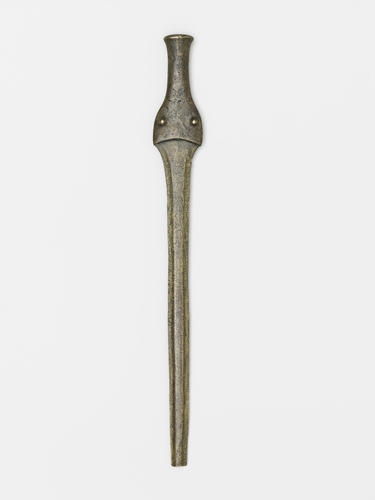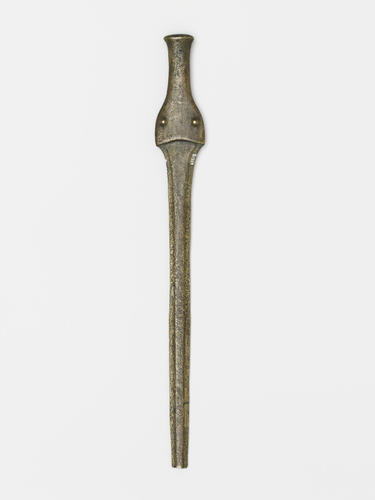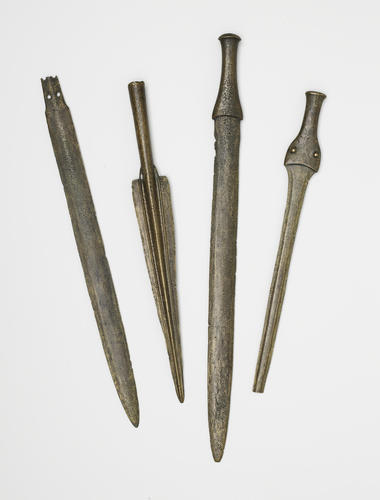Rapier c.1200-1000 BC
Copper alloy (Bronze) | 41.0 cm (length) | RCIN 61515
-
Bronze rapier with grip and blade cast in one piece. The narrow straight two edged blade originally tapered to a point (now lost) and is of lenticular section. The grip is of oval section with a mushroom shaped pommel, the grip broadening towards the blade with two small bumps on each face to represent rivets.
Provenance
This spear head is one of four late-Bronze Age items discovered at Ambleside, Cumbria, in the early eighteenth century. The assortment, known as the ‘Ambleside Hoard’, was uncovered ‘all together in a kind of bundle, two feet deep in a Peat Moss’. According to antiquarian Peregrine Bertie, who published the find in 1741, preservation in the peat had left the objects in good condition, with blades ‘so shape as to Cut [the] fingers’.
From 1805, the two swords, rapier and spearhead formed part of the vast collection of arms and armour displayed by The Prince of Wales (later George IV) at Carlton House.
They may correspond with five items (one now missing) purchased from Bland & Foster in September 1790 for 15 10s: ‘Three daggers & two Spear blades made of the Mettal [sic] used before Iron was known, the Arms us'd by the Romans when they invaded this Country. Very curious pieces of Antiquity’.
In 1837, the four known items were transferred to Windsor Castle, where they were arranged with other weapons and armour in the North Corridor under Prince Albert’s supervision.
Sent on long-term loan to the British Museum in 1977. -
Creator(s)
(nationality)Acquirer(s)
-
Medium and techniques
Copper alloy (Bronze)
Measurements
41.0 cm (length)
31.4 cm (blade length)
Category
Object type(s)
Subject(s)
Other number(s)










